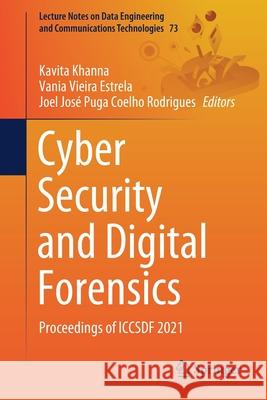Cyber Security and Digital Forensics: Proceedings of Iccsdf 2021 » książka
topmenu
Cyber Security and Digital Forensics: Proceedings of Iccsdf 2021
ISBN-13: 9789811639609 / Angielski / Miękka / 2021 / 620 str.
Kategorie:
Kategorie BISAC:
Wydawca:
Springer
Seria wydawnicza:
Język:
Angielski
ISBN-13:
9789811639609
Rok wydania:
2021
Wydanie:
2022
Numer serii:
000804827
Ilość stron:
620
Waga:
0.88 kg
Wymiary:
23.39 x 15.6 x 3.28
Oprawa:
Miękka
Wolumenów:
01
Dodatkowe informacje:
Wydanie ilustrowane











